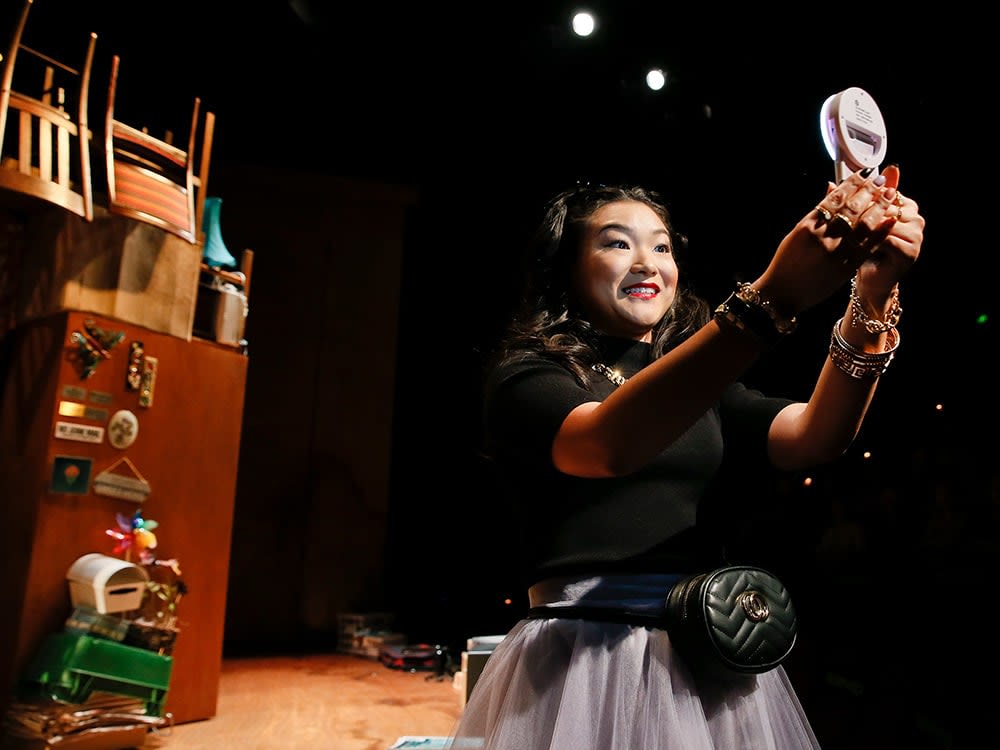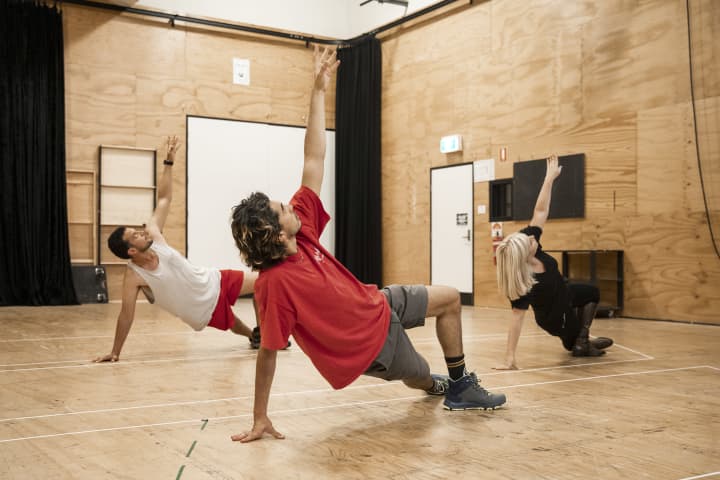As a regular on stage and on screens small and big, Michelle Lim Davison has plenty of experience to draw on when it comes to learning and delivering lines. For MTC, the Playschool presenter has played Natalie in Torch the Place and Miss Mabel Chiltern in An Ideal Husband. She answers Janice’s question about what an actor, as fallibly human as all of us, does if they forget their lines in the middle of a performance...
Thanks for the question. I’m often asked how actors learn lines and what we do if we forget our lines onstage. Both questions go hand in hand so I’ll try to briefly unpack the line learning process and expose some of the ways we cover our mistakes if something goes wrong.
How do I learn my lines?
Firstly, I should start by saying the line learning process varies greatly from actor to actor. It also depends on the piece you’re working on. My first play at MTC was a classic, Oscar Wilde’s An Ideal Husband. As the script was written over 100 years ago I got a bit of a head start – you know the lines aren’t going to change so you can get familiar with or even learn the lines before rehearsals start.

Michelle Lim Davidson during rehearsals for An Ideal Husband. Photo: Deryk McAlpin
I’ve had many conversations where people say to me ‘I could never remember all those words’, which is completely understandable. A good way to think about it is: you’re not staring at page full of dialogue and trying to learn it by rote. I think that would be quite overwhelming. I memorise my lines like a conversation. Below is in an excerpt from An Ideal Husband, and you can see each response is always prompted by the other character’s line.
Lord Arthur Goring Please don’t, Miss Mabel. I have something very particular to say to you.
Mabel Chiltern (rapturously) Oh, is it a proposal?
Lord Arthur Goring (somewhat taken aback) Well, yes, it is... I am bound to say it is.
Mabel Chiltern (with a sigh of pleasure). I am so glad! That makes the second today.
Lord Arthur Goring (indignantly) The second? What conceited idiot has been so impertinent to dare to propose to you before I had?
Mabel Chiltern Tommy Trafford, of course.
Lord Arthur Goring You didn’t accept him, I hope?
Mabel Chiltern As you didn’t turn up this morning, I very nearly said yes.
In rehearsals, we explore the best way we can perform the scene and combine this with technique. I’m using broad brush strokes but you get the idea. It helps to give you momentum and suddenly it doesn’t feel like you’re remembering 120 pages of endless words. It’s a journey that progresses line by line. Dialogue combined with staging and physicality create a memory within your body. You just need to trick yourself into hearing the lines for the first time every performance so it’s natural and alive.
What do actors do when they forget their lines?
Forgetting lines can be a terrifying experience, but you need to be prepared for it. Unexpected things can happen onstage – I once did show where an audience member got up and walked across the stage to go to the bathroom, which completely distracted the other actor and they went totally blank! In my case, I try not to panic; I think it’s best to keep calm and breathe. The tenser you get the less likely it is the line will come to you.

Michelle Lim Davidson and Fiona Choi during rehearsals for Torch the Place. Photo: Charlie Kinross
If it’s a new work and you’re the only person who knows the line, that can be both a blessing as well as a curse. Unlike a classic work, new plays can change daily and this also changes the preparation I can bring into it. This year I was in the new play Torch the Place by Benjamin Law, and in our rehearsal process I learnt three entirely different scripts for my character, Natalie!
During previews, we rehearse in the afternoon any script/staging changes that need to be made for the evening preview, so it’s a tight turnaround. If someone ‘dries’ (a commonly used phrase in the theatre for when someone can’t remember their lines) we need to think quickly and improvise around it, which is why it’s important to be listening carefully every show. You can help the other actor by finding a quick way to prompt their line, you can move the scene on to the next bit of dialogue or you can improvise until you get back on track.

Michelle Lim Davidson in Torch the Place. Photo: Jeff Busby
If a prop doesn’t function correctly it can be extra challenging. We had a chair in An Ideal Husband that collapsed during a matinee and we couldn’t get it offstage for an entire act so we improvised funny things around it. When the fire in Torch the Place didn’t work we moved swiftly to the next beat of the scene. Audiences at MTC are very generous so if they notice a mistake it tends not to be a big problem; as long as the production moves forward they are very forgiving.
I hope that gives you a little more insight into the line learning process and how we fix mistakes onstage. Looking forward to seeing you all back at the theatre soon.
Published on 4 August 2020





